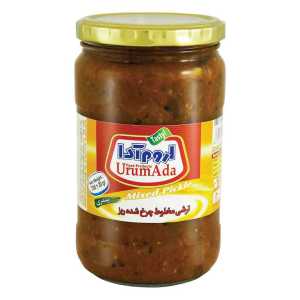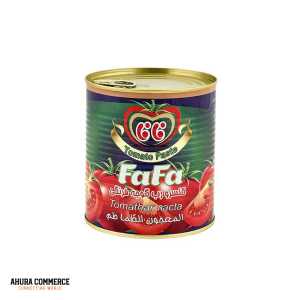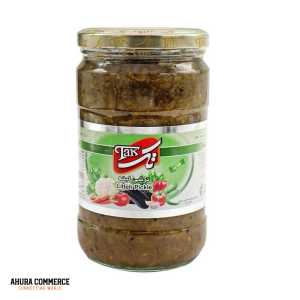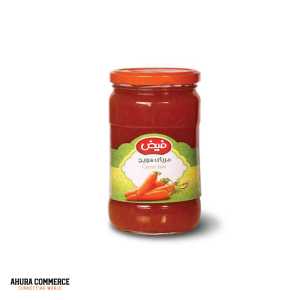Categories
- Agriculture
- Food and Beverage
- Cars and auto parts
- Electrics and Electronics
- Exchange
- Fashion and accessories
- Metallurgy Rubber & Plastics
- International Transportation
- Weaving, textiles
- Building Construction
- Chemicals
- Dairy
- Fruits and Vegetables
- Nuts and Spices
- Gifts and Toys
- Health and Beauty
- Home Appliances
- Livestock and poultry
- Machinery and Tools
- Row materials
- Office appliances
- Customs Clearance
- Home
- Nuts and Spices
- Exporting almonds to Germany
Exporting almonds to Germany
Description
Exporting almonds to Germany From Iran
Exporting Almonds to Germany
The global nut market is on the rise, with almonds leading as one of the most popular and health-conscious options available. Exporting almonds to Germany presents a remarkable opportunity for businesses looking to expand their reach in the European market. Germany, known for its strong economy and commitment to quality, has grown into one of the largest consumers of almonds in Europe. This article will delve into the critical aspects of exporting almonds to Germany, highlighting market trends, regulatory requirements, and effective marketing strategies.
Growing Demand for Almonds in Germany
Germany's demand for almonds has seen a steady increase over the years, largely driven by the nation’s growing health awareness and preference for nutritious snacks. Almonds are valued for their numerous health benefits, including high fiber content, antioxidant properties, and healthy fats. With an increasing number of consumers gravitating towards plant-based diets and healthier snacking options, the market for almonds is thriving.
Moreover, almonds have found their way into a variety of culinary applications, from baking to cooking, and are popular in traditional German recipes. Exporting almonds to Germany is not merely about supplying a popular snack; it’s about catering to a diverse range of culinary uses that resonate with German consumers.
Understanding the Market Landscape
Before embarking on the journey of exporting almonds to Germany, conducting comprehensive market research is essential. Understand local consumer preferences, pricing structures, and competitive dynamics. Identifying specific regions where almond consumption is high will allow you to tailor your marketing efforts effectively.
Germany has a robust retail environment, characterized by both brick-and-mortar stores and a growing e-commerce sector. Establishing relationships with distributors and retailers is crucial. This will not only facilitate smoother access to various market channels but also enhance brand visibility among potential consumers.
Regulatory Framework and Compliance
Exporting almonds to Germany necessitates a solid understanding of the European Union's regulations and food safety standards. The EU has strict requirements to ensure the quality and safety of food products, including nuts. Compliance with the European Food Safety Authority (EFSA) guidelines is paramount for successful importation.
Exporters must secure necessary certifications related to food safety, organic produce, and labeling. Proper labeling is essential, as it not only ensures compliance with regulations but also informs consumers about the product’s nutritional value and usage. Understanding these regulations will streamline your entry process, making exporting almonds to Germany a smoother experience.
Quality Assurance for Market Success
Quality plays a pivotal role in the success of any food product in the market, and almonds are no exception. Implementing stringent quality control measures throughout the production, processing, and packaging phases is essential. Freshness and flavor must be preserved to meet the high expectations of German consumers.
Furthermore, packaging is critical in maintaining the product's quality during transport. Using eco-friendly packaging materials can also appeal to environmentally conscious consumers. Clear labeling that emphasizes the health benefits of almonds will enhance their market acceptance, making it a vital element of your strategy when exporting almonds to Germany.
Crafting Effective Marketing Strategies
A well-structured marketing strategy is essential for successfully exporting almonds to Germany. Highlighting the health benefits, versatility, and quality of almonds will certainly attract attention. For example, showcasing almonds as a natural source of energy, a perfect snack for active lifestyles, or as an ingredient for homemade pastries can resonate well with consumers.
Participating in trade fairs and food exhibitions can significantly increase the visibility of your almond products. These platforms offer opportunities to connect with potential distributors, retailers, and consumers eager to explore new products. Networking at such events can also provide valuable insights into market trends and consumer preferences.
In addition to traditional marketing methods, leveraging digital marketing strategies is increasingly important. Social media campaigns, engaging content, and collaborations with influencers can enhance your brand presence. Sharing recipes, health tips, and innovative ways to use almonds can cultivate an engaged audience. This approach can effectively support your endeavors in exporting almonds to Germany.
Logistics and Supply Chain Management
An effective logistics strategy is vital for the successful export of almonds to Germany. Selecting reliable shipping partners will ensure timely delivery while preserving product quality. Understanding customs clearance procedures and possible tariffs is crucial for efficient budget management and a hassle-free entry to the German market.
Creating a robust distribution network is equally important. Whether through partnerships with established retailers or direct-to-consumer online channels, a well-defined distribution strategy will strengthen your position when exporting almonds to Germany.
Conclusion
Exporting almonds to Germany presents a lucrative opportunity for businesses poised to meet the growing demand for healthy snacks and versatile ingredients. By conducting thorough market research, adhering to regulatory standards, ensuring product quality, and developing effective marketing strategies, exporters can successfully navigate this competitive landscape.
Germany’s commitment to health, quality, and sustainability aligns perfectly with the attributes of almonds, making them an exceptional product for export. Now is the time to seize these opportunities and embark on the exciting journey of exporting almonds to Germany. With strategic planning, a dedication to quality, and a deep understanding of the market, your business can flourish in this vibrant economy, unlocking the potential of almonds on the global stage. Take this step toward growth and embrace the opportunity to thrive in the exciting world of exporting almonds to Germany!
Location
Exporting almonds to Germany

Ahura Commerce facilitates seamless international trade. Our platform empowers businesses of all sizes to navigate import/export regulations, connect with global partners, and optimize logistics. Leverage our expertise and network to achieve sustainable growth in today's interconnected marketplace.

















































































































